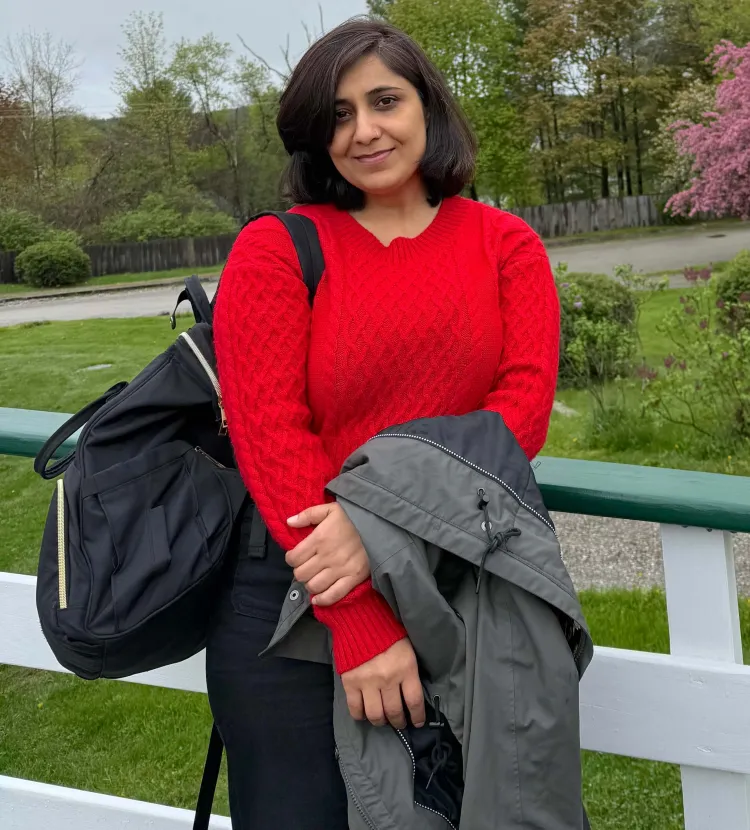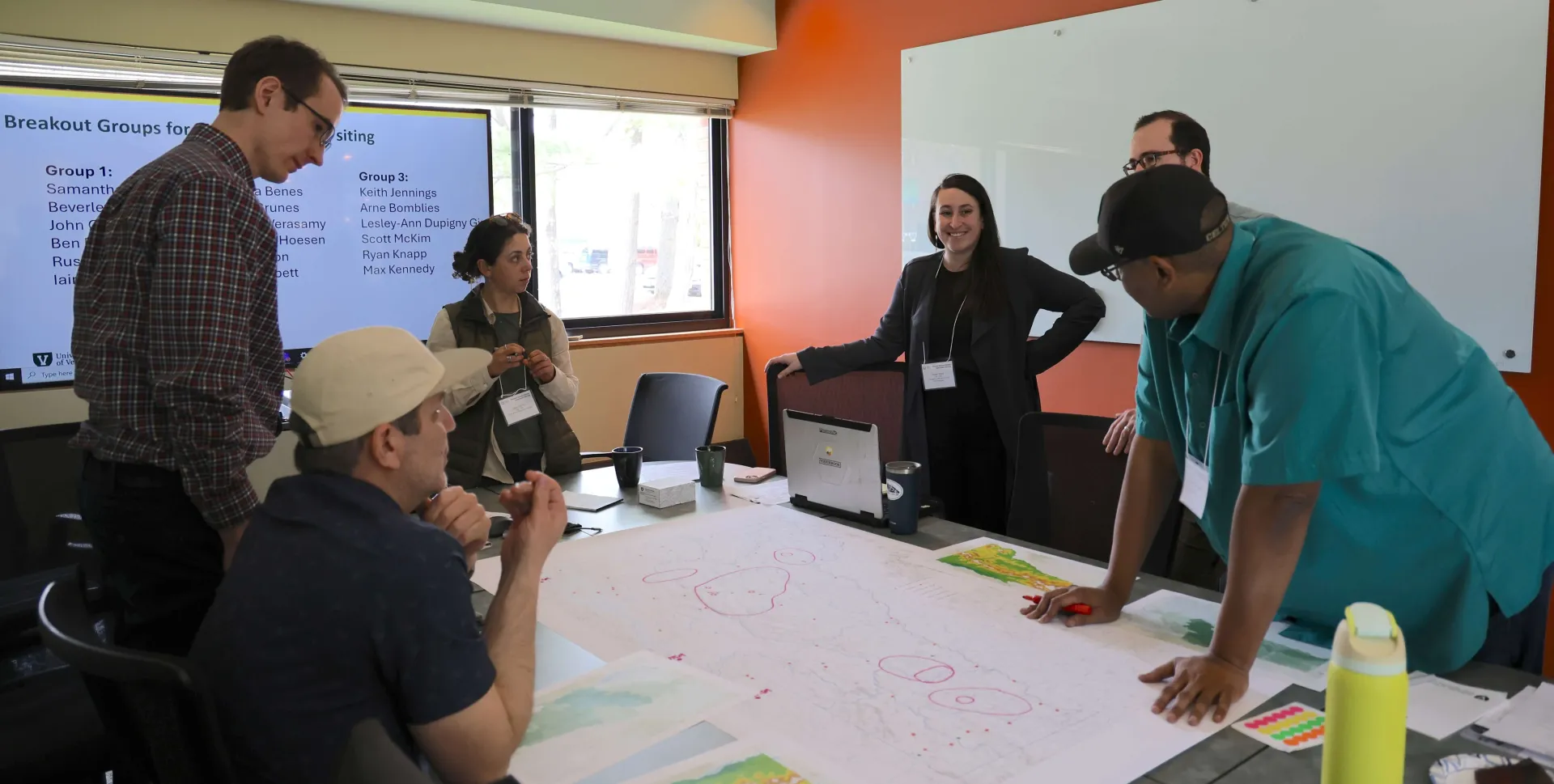SDPEG Students Highlight Sustainable Solutions for a Changing World
The Sustainable Development Policy, Economics and Governance (SDPEG) Program is a transdisciplinary doctoral program focusing on the policies, practices, and theories of sustainable development. It is centered around the United Nations Sustainable Development Goals, from climate action to poverty to clean water and sanitation. By drawing from an intersecting toolbox of social, environmental, economic methods, SDPEG empowers the next generation of leaders to work for a more sustainable and equitable future for our planet.
SDPEG students Maryam Abbasi and Emma Spett illuminate how the program provides a practical education for tackling the world’s most pressing challenges.
Maryam Abbasi’s PhD research focuses on climate-induced migration and early warning systems. Originally from Pakistan, Abbasi previously worked, at a think tank, on sustainable development, climate change, and the environment.

While living in Pakistan, she felt isolated in her passion for sustainability. “Everyone thought I was crazy for having my undergraduate degree in environmental sciences. I was born in a village in Punjab, Pakistan where I always saw lush green forests and freshwater streams and waterfalls,” she explains. After moving to the city for better education, she noticed the deterioration of nature around her, which sparked her interest in environmental studies.
Abbasi was drawn to the interdisciplinary nature of the SDPEG program. “I believe climate change is so cross-sectoral — it has your health issues, governance issues, economic crisis, food insecurity,” she says. After conducting research in separate departments in Pakistan, she wanted to explore how they relate to each other.
SDPEG has enabled her to utilize her previous research while growing her knowledge base. “I wanted to develop my niche on the policy side- which is why I did my master’s in Environmental Policy and Management to understand how policies work in Pakistan,” Abbasi says. This research has helped inform the current work she does, now examining policies in the United States.
Alongside her time in SDPEG, she is voluntarily serving on the Vermont Environmental Justice Council to represent immigrant communities and how people of color are disproportionately affected by climate change.
From Pakistan to the Green Mountain State, SDPEG students are applying their expertise to make communities more resilient and robust.
SDPEG’s first ever student, Emma Spett, has been involved in CDAE since the beginning of her time at UVM. She began her doctoral work in 2021 and currently works for the Office of Engagement and the Leahy Institute for Rural Partnerships. Among other initiatives, “we at the Leahy Institute are funding a project that’s mapping and making sense of all the available data around wastewater infrastructure,” Spett says. In her work, she asks: “how do we create tools, products and data for communities in Vermont that need help?”
Spett has always been passionate about environmental studies but wanted to find a path that incorporated social sciences as well. “I had done a lot of international development work in my undergrad, and something that flipped a switch was the 2016 election for me — I really wanted to be a stakeholder in my own research,” Spett explains.
She graduated from New York University in 2016 with a B.A. in environmental policy and a background in international development. Having grown up in Vermont, Spett was drawn to more community-based research. “I wanted to do research that makes a difference, but I wanted it to be localized, more place-based,” she says.
Spett completed her master’s as a graduate research assistant in CDAE, with a focus on the flooding in the Lake Champlain Basin. Her broad focus is now on rural development and data governance.
The SDPEG program has been a great fit for Spett because of its flexibility and wide- ranging research. “The unique thing about this program is the transdisciplinary aspect of it. The sustainable development coursework we took was like a choose-your-own-adventure,” she says.
What Abbasi and Spett’s future in SDPEG will look like remains unknown, as their work is constantly shifting. They have had to adapt to the new U.S. federal administration, which is changing many aspects of this work and making progress challenging to achieve on a wider scale.
“A lot of the sustainable development goals have been villainized, [such as] climate change, gender equity, health care. The 17th SDG is partnerships, and I think that’s going to be more critical than ever, going forward,” Spett says.
“The program is new and it is evolving,” Abbasi states. “We must stand tall because if the US administration doesn’t believe in these issues, that doesn’t mean they cease to exist.”
